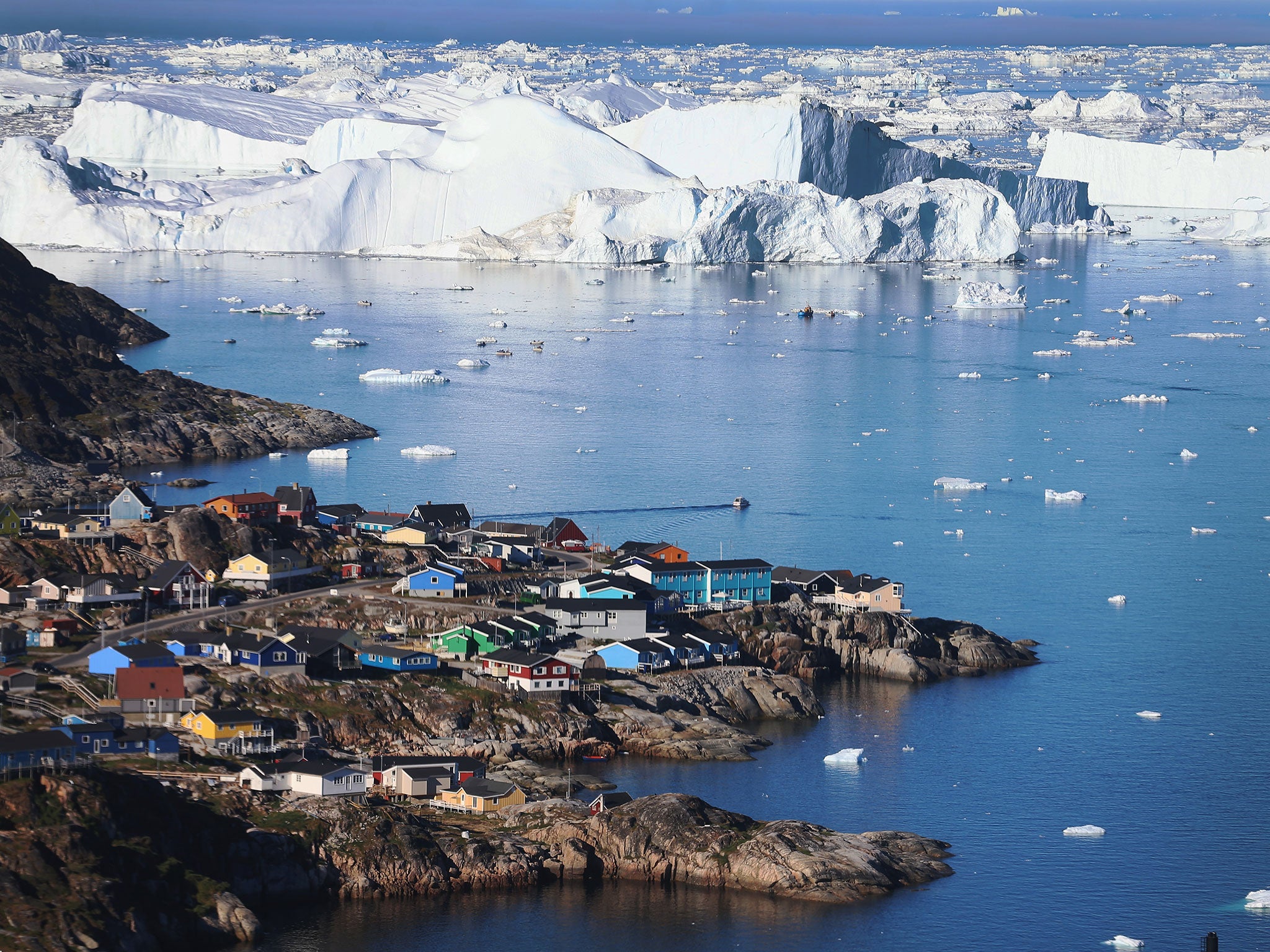Greenland's biggest glacier grows but scientists warn against climate change optimism
Slight thickening of ice surprises scientists – although growth is outweighed by overall loss of mass
Your support helps us to tell the story
From reproductive rights to climate change to Big Tech, The Independent is on the ground when the story is developing. Whether it's investigating the financials of Elon Musk's pro-Trump PAC or producing our latest documentary, 'The A Word', which shines a light on the American women fighting for reproductive rights, we know how important it is to parse out the facts from the messaging.
At such a critical moment in US history, we need reporters on the ground. Your donation allows us to keep sending journalists to speak to both sides of the story.
The Independent is trusted by Americans across the entire political spectrum. And unlike many other quality news outlets, we choose not to lock Americans out of our reporting and analysis with paywalls. We believe quality journalism should be available to everyone, paid for by those who can afford it.
Your support makes all the difference.To scientists’ surprise, the biggest glacier in Greenland has grown while all those around it are melting.
Since 2016, the ice of the Jakobshavn glacier has been thickening slightly at its edge, contrary to the apparently relentless retreat of all polar ice, Nasa experts have discovered.
But they say their findings are not good news for climate change, because Greenland overall is still losing large amounts of ice, which outweighs the small amount gathered by the Jakobshavn glacier.
In an article in Nature Geoscience, researchers from Nasa’s Oceans Melting Greenland (OMG) project said the slight growth was down to relatively cool ocean waters at the glacier’s base, reversing a 20-year trend of thinning and retreating ice.
But the Jakobshavn drains only about 7 per cent of the ice sheet, so even if it were growing robustly, ice loss elsewhere would outweigh its slight expansion, the scientists warned.
“The thinking was once glaciers start retreating, nothing’s stopping them,” said Josh Willis, lead scientist of the project. “We’ve found that that’s not true.”
The researchers believe a recent influx of unusually cold water from the north Atlantic pushing into the Arctic has caused the glacier to grow slightly.
And other glaciers among Greenland’s 200 or more may also be expanding, suggesting changes may be harder to predict than previously thought, said Willis.
A natural cycle in the Atlantic Ocean switches back and forth between warm and cold about once every 20 years, taking cooler waters far up the western coast of Greenland. But the phase will switch again at some point and warmer waters will return.

“All this is an indicator of how sensitive glaciers are to ocean temperatures,” says the study’s lead author, Ala Khazendar, a glaciologist with the project.
The team suspects it may mean that the overall melting trend may be happening more slowly than previously thought, National Geographic reported.
However, the Jakobshavn glacier “is still contributing to global sea rise”, Dr Khazendar said. “That doesn’t stop.”
This cooling is going to pass. When it does, the glacier is going to retreat even faster than before
Between 2000 and 2010, Jakobshavn contributed the largest solid ice discharge in all of Greenland’s ice sheet, equivalent to nearly 1mm of global sea rise.
The glacier had had periods of alternating fast retreat and growth in the 20th century, Dr Khazendar said.
But on average the air and sea are warming, so retreats will always be bigger than advances, Dr Willis added.
“Over 90 per cent of the heat that’s trapped from greenhouse gases are warming the oceans. So we know in the long run, this cooling is going to pass. When it does, the glacier is going to retreat even faster than it was before.”
Antarctic glaciers are also being eroded by warm currents, with 10 per cent of the continent’s coastal glaciers in retreat.
Research has shown that from 1979 to 2012, Greenland’s rainfall increased, triggering sudden melting.

Join our commenting forum
Join thought-provoking conversations, follow other Independent readers and see their replies
Comments